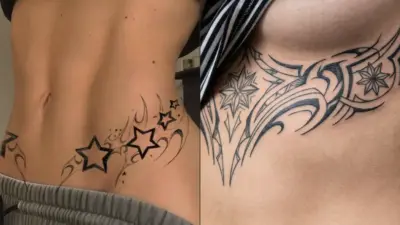Whether you’re new to tattoos or adding another to your collection, proper aftercare is crucial for your skin’s healing and your art’s appearance. Using a dedicated tattoo lotion keeps your tattoo moisturized, helps prevent itching, and supports a smooth, healthy healing process. With so many options available, it can be tricky to know what makes a lotion right for you and your new ink.
Tattoo lotions are specially designed to soothe fresh tattoos, avoid irritation, and lock in moisture without clogging pores. The right ingredients can help protect your tattoo’s color and prevent dryness or flaking. Whether you need relief during those first itchy days or want to maintain vibrant ink over the years, choosing a suitable lotion is key.

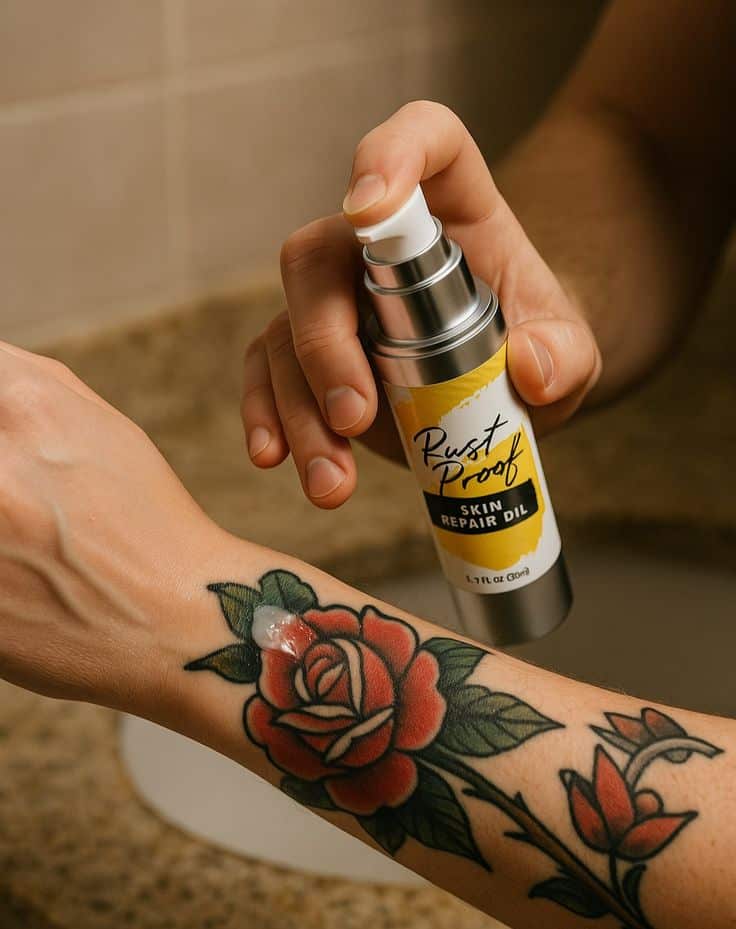
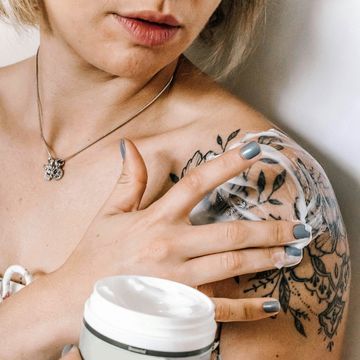
Key Takeaways
- Tattoo lotion helps support healing and keeps tattoos vibrant
- Ingredients matter for soothing and protecting your skin
- Picking the right lotion can make tattoo care easier and more effective
What Is Tattoo Lotion?
Tattoo lotion is a skin care product specifically designed to aid in tattoo healing and maintenance. It helps protect your tattoo, speeds up the healing process, and prevents issues like dryness, flaking, or irritation. The right tattoo lotion keeps your ink vibrant while supporting your skin’s recovery.
Purpose of Tattoo Lotion
Tattoo lotions are formulated to hydrate and protect healing skin after you get tattooed. Right after a session, your skin is essentially an open wound—so it needs gentle, effective moisture to recover properly.
Applying tattoo aftercare lotion helps prevent scabbing and excessive dryness. It also reduces the itching and flaking that commonly occur during the healing process. Some formulas contain ingredients like aloe vera, shea butter, or vitamin E for extra soothing and nourishment.
Daily use of tattoo lotion can keep colors looking fresh and prevent your tattoos from fading over time. Proper moisturizing also minimizes the risk of infection by supporting your skin’s natural barrier.
How Tattoo Lotions Differ from Other Aftercare Products
Not all moisturizers are safe for new tattoos. Regular body lotions or creams may have fragrances, dyes, or harsh chemicals that can irritate sensitive, healing skin. Tattoo lotions, by contrast, are often fragrance-free, hypoallergenic, and made with gentle ingredients.
There are differences between tattoo balm, tattoo aftercare lotion, and tattoo cream. Here’s a quick comparison:
| Product | Texture | Main Use |
|---|---|---|
| Tattoo Lotion | Lightweight | Daily moisturizing and healing |
| Tattoo Balm | Thicker/Oily | Extra protection, especially in dry environments |
| Tattoo Cream | Medium | Healing and long-term tattoo care |
Choosing the right product depends on your tattoo size, skin type, and how your skin reacts after tattooing.
Common Myths About Tattoo Lotion
Myth 1: Any moisturizer works for tattoos.
In reality, some lotions can clog pores or cause irritation. Always use products labeled as tattoo lotion or aftercare lotion.
Myth 2: Ointments are better than lotions for tattoos.
Petroleum-based ointments can create a barrier that traps bacteria or slows healing, especially if used for too long. Lightweight lotions or creams are preferred after the first few days.
Myth 3: You should apply a lot of lotion.
Using too much can suffocate your skin or cause breakouts. Apply a thin, even layer and let the skin breathe.
Important Note:
Look for lotions without artificial colors, added scent, or alcohol. These ingredients can lead to allergic reactions or skin dryness. Your goal is to keep the skin supple and healthy without causing new problems.

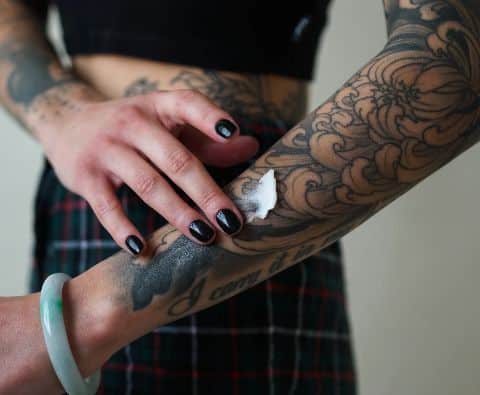

Tattoo Aftercare and the Role of Lotion
Keeping your new tattoo healthy depends on proper aftercare. The right lotion choices and application methods help protect your ink, keep your skin hydrated, and prevent complications during healing.
Why Moisturizing Is Essential for Tattoo Healing
A new tattoo is essentially an open wound. Moisturizing with a suitable tattoo aftercare lotion, cream, or balm supports healing by preventing the skin from drying out and cracking.
Dry skin can cause itching, scabbing, and even patchy ink loss. When you keep the tattooed area well-moisturized, you reduce the risk of these issues and encourage the skin to repair itself.
Tattoo moisturizers act as a protective barrier, minimizing irritation and helping maintain the color and clarity of your tattoo. Fragrance-free, gentle ingredients—especially in natural tattoo aftercare products—are less likely to cause a reaction or disrupt the healing process.
Proper hydration also helps control flaking. While some peeling is normal, over-drying can lead to excess scabbing and damage.
When and How Often to Apply Tattoo Lotion
Most artists recommend waiting 2-3 days after your tattoo session before you start applying lotion. This allows initial plasma and ink to drain and the tattoo to dry and settle.
When the skin stops oozing and begins to feel tight or dry, you should begin using a thin layer of tattoo aftercare cream or lotion. Apply it 2-3 times daily, or as directed by your artist.
Use just enough product to lightly coat the area—don’t saturate the tattoo. You want to keep the skin moist but never greasy, which can trap bacteria. Continue moisturizing until your tattoo is fully healed, which usually takes about 2-4 weeks.
Tip: Look for products labeled specifically as “tattoo aftercare” or “tattoo balm.” These are often formulated to be gentle and non-comedogenic.
Mistakes to Avoid with Tattoo Aftercare Products
Avoid lotions or creams with added fragrances, alcohol, or harsh chemicals, as these can lead to irritation and delayed healing. Petroleum-based products are also not recommended, since they can block airflow and increase infection risk.
Don’t over-apply lotion—too much can create a moist environment for bacteria to grow. Never pick at scabs or peeling skin, as this can pull out ink and cause uneven healing.
Stay away from generic moisturizers if they’re heavily scented or not tested for sensitive skin. Always wash your hands before touching your tattoo, and reapply your tattoo moisturizer with clean hands.
Let your tattoo “breathe” by sticking to light layers and avoiding occlusive dressings unless your artist advises otherwise. Proper aftercare helps your tattoo look its best for years to come.
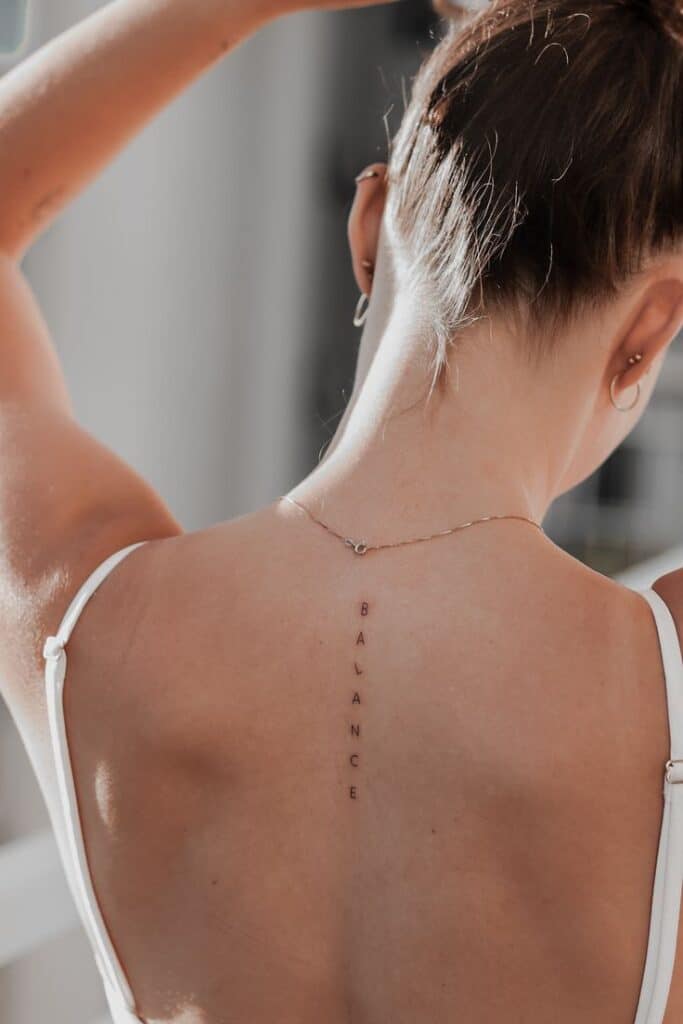

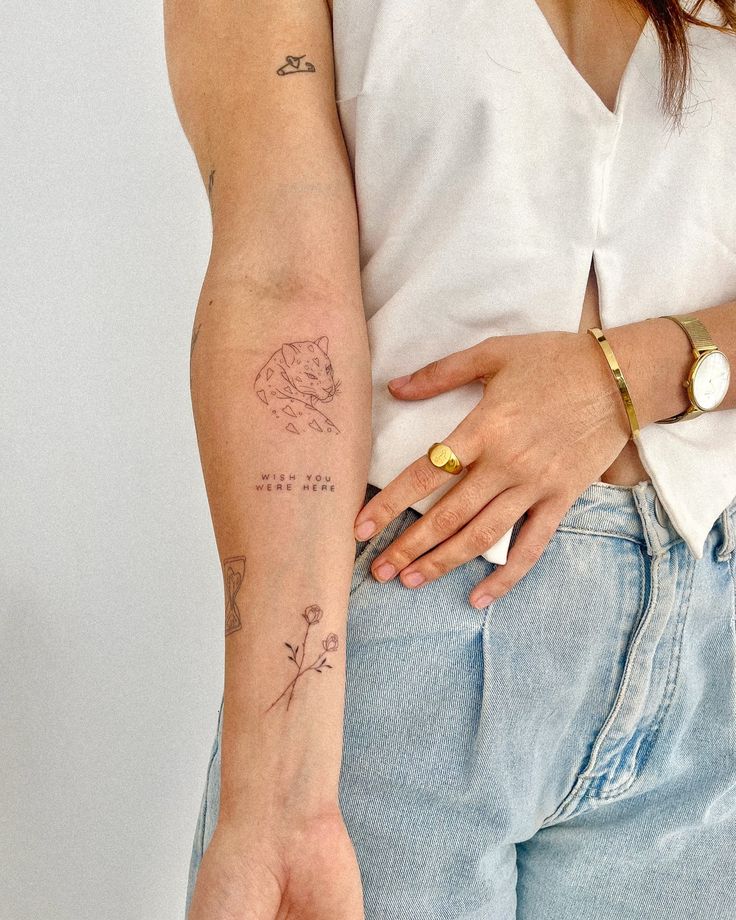
Key Ingredients in Tattoo Lotions
Tattoo lotions use specific ingredients designed to hydrate, protect, and soothe newly tattooed skin. Knowing which components help or hinder healing can make a significant difference in your tattoo aftercare routine.
Moisturizing and Healing Ingredients
Effective tattoo lotions rely on high-quality moisturizing agents to keep your skin supple as it heals. Shea butter is a popular choice for its rich hydration, while glycerin attracts and holds moisture. Petrolatum can lock in moisture, forming a protective barrier.
For additional healing power, panthenol (vitamin B5) is commonly included for its soothing and skin-repairing benefits. Beeswax is sometimes added for its gentle, natural protective layer. Below is a quick look at key moisturizers:
| Ingredient | Function |
|---|---|
| Shea Butter | Deep hydration, softens skin |
| Glycerin | Draws in and retains moisture |
| Petrolatum | Prevents water loss, protects skin |
| Panthenol (B5) | Supports healing, reduces irritation |
| Beeswax | Gentle barrier, locks in moisture |
Lotions may also include castor oil and sunflower oil for their emollient properties and lightweight, non-greasy feel.
All-Natural and Organic Components
When your skin is healing from a tattoo, all-natural ingredients can reduce the risk of irritation and allergic reaction. Oils like coconut, sunflower, and castor oil are gentle and provide light, nourishing moisture. Aloe vera is a popular natural choice to cool and soothe inflamed skin.
Organic tattoo lotions often skip synthetic chemicals. Instead, they rely on ingredients grown without pesticides or harsh processing, such as unrefined shea butter, beeswax, and cold-pressed oils. Products labeled as organic may limit potential contaminants and keep your aftercare as natural as possible.
If you have sensitive skin, opting for natural and fragrance-free lotions can help avoid unexpected reactions and promote smoother healing.
Ingredients to Avoid in Tattoo Lotions
Certain substances can disrupt healing or cause irritation to a fresh tattoo. Avoid lotions that contain:
- Fragrances or perfumes: These can irritate new tattoos and increase chances of allergic reactions.
- Dyes and coloring agents: Artificial colors may cause inflammation.
- Alcohol and parabens: Both can dry out or sensitize healing skin.
- Lanolin: While sometimes present in moisturizing products, lanolin can cause allergic reactions in sensitive those with skin sensitivities.
- Retinol and AHAs: These exfoliating agents are too harsh for healing tattoos.
Watch for mineral oil and heavily processed ingredients, as these can sometimes clog pores or delay healing. Always read ingredient labels to avoid these common irritants when caring for new ink.

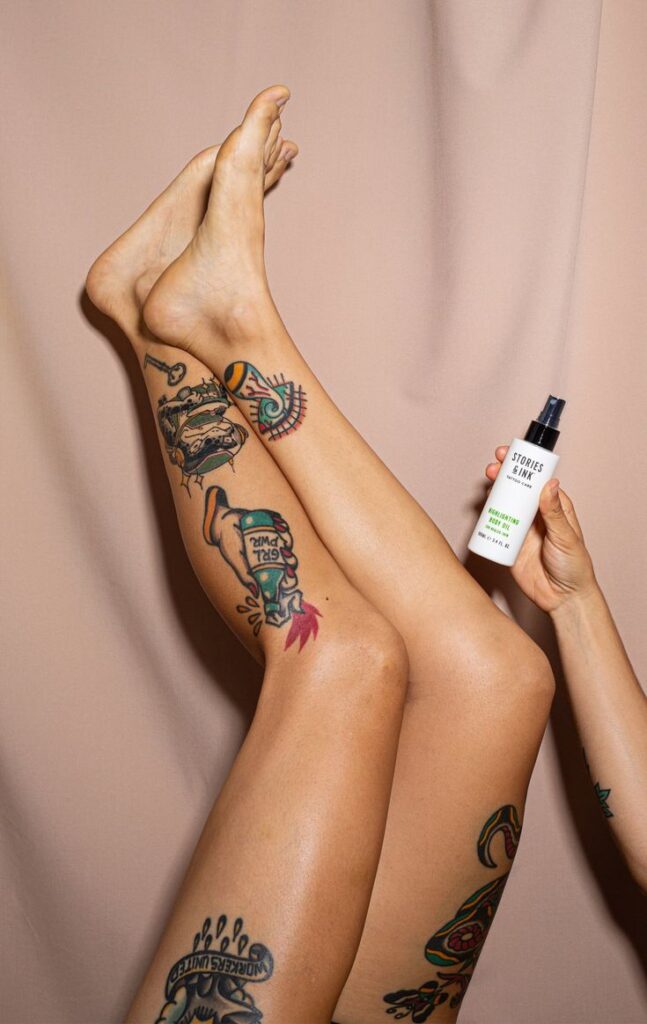

Types of Tattoo Lotions and Balms
Choosing the best product for tattoo aftercare depends on your skin type and healing needs. Here’s a closer look at how tattoo lotions, creams, and balms differ, plus what to look for if you need extra gentle care.
Lotions vs. Creams vs. Balms
Tattoo lotions are usually light, water-based, and absorb quickly. These are ideal if you want something that won’t leave your skin feeling greasy and are suitable for everyday moisturizing. They keep your new ink hydrated without clogging pores.
Creams tend to be thicker than lotions and offer longer-lasting moisture. Tattoo aftercare creams often help soothe dryness and protect healing tattoos. They are a good option if your skin feels extra dry or if you want better barrier protection.
Tattoo balms are dense and rich, sometimes made from natural oils and butters like shea or coconut. Balms are especially helpful in the early days of healing, forming a protective layer over new tattoos. However, some balms can feel heavy, so they’re better used sparingly.
Here’s a quick comparison:
| Product Type | Texture | Best For | Drawbacks |
|---|---|---|---|
| Lotion | Light | Daily hydration | Less lasting power |
| Cream | Medium-Thick | Soothing, dry skin | Can feel heavy |
| Balm | Thick/Oily | Barrier, initial healing | May clog pores |
Fragrance-Free and Sensitive Skin Options
When searching for products, look for those labeled fragrance-free or sensitive skin friendly. Fragrances and dyes can irritate a healing tattoo or trigger allergic reactions, slowing recovery. Dermatologist-recommended tattoo lotions and tattoo aftercare balms are typically hypoallergenic and avoid harsh chemicals.
Ingredients like aloe vera, vitamin E, and panthenol are often featured for their soothing effects. Choose products that boast minimal ingredients and avoid alcohol, which can dry out your tattoo. If your skin is prone to irritation, patch test any lotion or aftercare balm on a small area before applying it to your tattoo.
Some brands even offer balms and creams specifically for newly tattooed skin. These usually skip common irritants and focus on gentle, restorative care for sensitive areas.
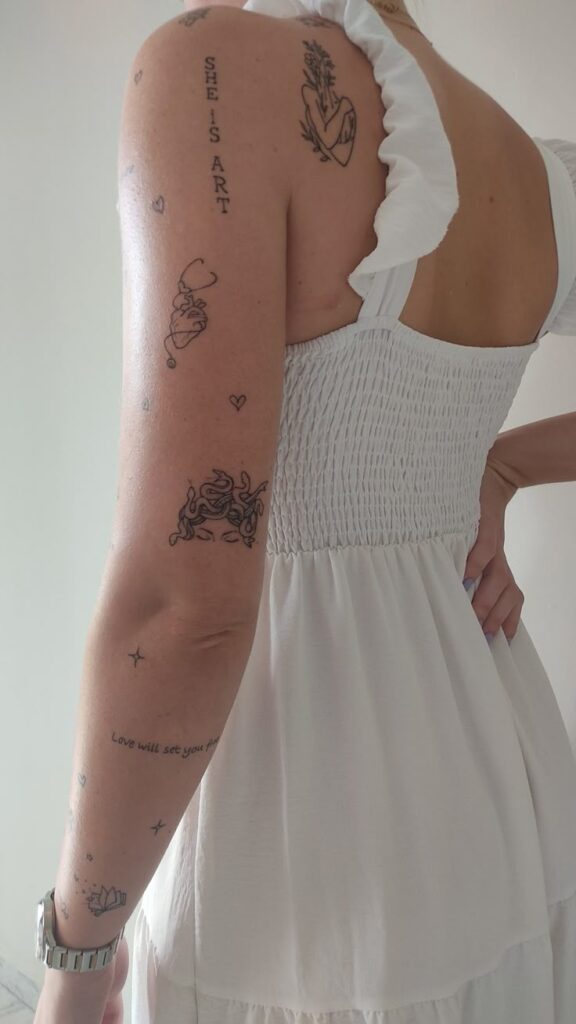

Choosing the Best Tattoo Lotion for Your Needs
Choosing the right tattoo lotion helps your skin heal, keeps your design looking sharp, and supports long-term ink vibrancy. The best product for you depends on several factors, including skin sensitivity, tattoo size and location, and personal ingredient preferences.
Factors to Consider: Skin Type and Tattoo Placement
Your skin type matters when selecting a tattoo lotion. If you have sensitive skin or a history of allergies, it’s best to choose fragrance-free and hypoallergenic formulas. Ointments like Aquaphor Healing Ointment are often recommended for dry or easily irritated skin in the early days of healing.
The placement of your tattoo also affects lotion choice. For tattoos in high-friction areas (like wrists or ankles), you may prefer quick-absorbing creams to avoid residue on clothes. For larger areas, lightweight lotions such as After Inked Tattoo Moisturizer allow for easy coverage and avoid clogged pores.
Check ingredient lists and avoid lotions with alcohol, artificial coloring, or heavy fragrances. These can slow healing or cause irritation. Look for vitamin E, shea butter, panthenol, or natural oils for soothing and hydration.
Top-Rated Tattoo Lotions and Balms
Many products are popular among tattoo artists and enthusiasts for aftercare. Tattoo Goo combines natural oils and vitamins in a non-petroleum base, while Hustle Butter Deluxe offers a smooth, buttery texture. Both are popular for soothing new tattoos and preventing flaking.
Aquaphor Healing Ointment remains a staple for the initial healing stage due to its gentle barrier protection, though it can feel greasy. For ongoing care, Mad Rabbit Defend and After Inked Tattoo Moisturizer are well-loved for their lightweight feel and focus on vibrancy preservation.
Another option, Badger Tattoo Balm, uses beeswax and herbal extracts for natural moisture. The table below highlights a few of these options:
| Product | Type | Key Feature |
|---|---|---|
| Tattoo Goo | Balm | Vitamins & Natural Oils |
| Hustle Butter Deluxe | Butter/Balm | Shea Butter, Coconut Oil |
| Aquaphor Healing Ointment | Ointment | Barrier Cream, No Fragrance |
| Mad Rabbit Defend | Lotion | Lightweight, Vibrancy Focus |
| After Inked Tattoo Moisturizer | Lotion | Non-Greasy, Hypoallergenic |
| Badger Tattoo Balm | Balm | Organic, Beeswax Base |
Vegan and Cruelty-Free Tattoo Aftercare Options
You may prefer products not tested on animals or made without animal ingredients. Several top lotions and balms are both vegan and cruelty-free. Hustle Butter Deluxe is 100% vegan and widely recommended by artists for its gentle, plant-based ingredients such as mango and coconut oil.
Mad Rabbit Defend is another vegan lotion, using all-natural, plant-derived ingredients that support healing without animal byproducts. After Inked Tattoo Moisturizer is certified vegan, cruelty-free, and free from parabens and fragrances.
Tattoo Goo also offers a dedicated vegan version for those with strict ingredient requirements. Always check labeling or company websites for the latest cruelty-free certifications or vegan formulations, as product lines may change. Whether for ethical reasons or sensitive skin, vegan-friendly options make it easier to follow your values during tattoo aftercare.
Maintaining and Protecting Healed Tattoos
Keeping your tattoo looking fresh involves regular skin care and taking steps to prevent fading or damage. Consistent use of gentle moisturizers and careful sun protection both play a vital role in long-term tattoo care.
Long-Term Tattoo Care and Moisturizing
Daily moisturizing helps keep tattooed skin healthy and vibrant. Fragrance-free lotions or products made specifically for tattoo care are best for avoiding irritation. Look for formulas labeled as non-greasy and designed to absorb quickly.
A simple routine works well:
- Cleanse the area gently each day.
- Apply tattoo moisturizer morning and night.
- Avoid picking at peeling skin, which can interfere with healing, even after the initial period.
Popular choices include Aquaphor, Hustle Butter, and specially formulated tattoo lotions. Ingredients like vitamin E and natural oils, such as coconut oil or Inca Inchi oil, provide hydration and enhance elasticity. Regular moisturizing prevents dryness, itching, and premature fading of your ink.
Sun Protection and Everyday Tattoo Maintenance
Direct sunlight is one of the main causes of tattoo fading. Whenever you plan to be outside, use a broad-spectrum sunscreen with at least SPF 30 on your tattoos. For the best results, choose sunscreens that are fragrance-free and safe for sensitive skin.
Wear protective clothing over recently healed tattoos if possible. Avoid tanning beds, which can cause colors to fade more quickly.
Routine tips:
- Apply sunscreen every two hours if swimming or sweating.
- Reapply after towel drying.
- Inspect tattoos often for any changes in texture or color, and moisturize after sun exposure.
Maintaining your aftercare habits ensures your tattoo remains sharp and well-defined for years.
- 836shares
- Facebook0
- Pinterest833
- Twitter3
- Reddit0
